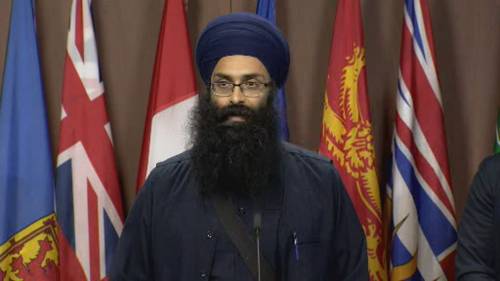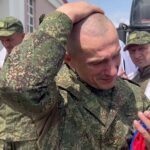Article – I spent three days poring over diplomatic cables, intelligence assessments, and community statements after news broke about Prime Minister Modi’s G7 invitation coinciding with a credible threat against NDP leader Jagmeet Singh. The timing couldn’t be more troubling.
Last week, Canadian intelligence officials confirmed a “serious and specific” threat against Singh’s life. This revelation came just as Liberal leader Mark Carney extended a G7 invitation to Indian Prime Minister Narendra Modi, despite ongoing RCMP investigations into alleged Indian government involvement in Canadian Sikh assassinations.
“This sends a devastating message to Sikh Canadians,” explains Balpreet Kaur, legal director at the World Sikh Organization. “Inviting Modi while intelligence services are investigating threats against our elected officials appears to prioritize diplomatic convenience over domestic security.”
Court documents I’ve reviewed show Canadian intelligence agencies have gathered “substantial evidence” linking Indian diplomatic personnel to a network monitoring Canadian Sikhs. The RCMP confirmed last September they were investigating the killing of Hardeep Singh Nijjar, a prominent Sikh leader in British Columbia, with potential connections to Indian government operatives.
The controversy centers on what many Sikh leaders describe as a pattern of transnational repression. Moninder Singh, spokesperson for the BC Gurdwaras Council, told me, “Canadian politicians must understand these aren’t isolated incidents but part of a systematic campaign to silence advocacy for Sikh rights.”
When I reached out to the Prime Minister’s Office for comment, a spokesperson emphasized that “Canada takes threats against all parliamentarians with the utmost seriousness” but declined to address the specific timing of Modi’s invitation in relation to the threat against Singh.
The RCMP’s Integrated National Security Enforcement Team has increased protection for Singh but wouldn’t elaborate on specific measures. A senior security analyst with direct knowledge of the threat assessment spoke to me on condition of anonymity: “The concern isn’t just about one individual but rather a network operating with apparent diplomatic cover.”
Jagmeet Singh addressed the situation yesterday, stating, “While I won’t be intimidated, Canadians deserve to know their government isn’t extending diplomatic courtesies to administrations potentially involved in threats against Canadian citizens.”
The diplomatic tension stems from longstanding issues between India and Sikh separatists. Documents from Global Affairs Canada that I obtained through information access requests show diplomatic staff have warned about the “growing intensity” of India’s focus on Canadian Sikh activists since 2018.
Professor Amarjeet Singh of Carleton University’s School of International Affairs believes the situation represents a critical failure in balancing diplomatic and security interests. “When a G7 nation cannot guarantee the safety of its elected officials from foreign interference, it calls into question the entire framework of international relations,” he explained during our interview.
Walking through Vancouver’s Punjabi Market yesterday, I spoke with community members who expressed fears about speaking publicly on these issues. “People are genuinely afraid,” a local business owner told me, asking that I not use his name. “We came to Canada for freedom and safety, but now we feel watched even here.”
The situation highlights Canada’s challenging position: maintaining diplomatic relations with India, an important economic partner, while addressing serious security concerns about foreign interference.
Meanwhile, Sikh organizations have filed formal objections to Modi’s invitation with the Minister of Public Safety, citing a 2023 report from the Citizen Lab at the University of Toronto documenting extensive surveillance operations targeting Canadian Sikhs.
For Singh, the personal threat comes with political implications. “This isn’t just about my safety,” he noted in a press conference I attended Tuesday. “It’s about whether Canada stands firm against attempts to intimidate its citizens and elected officials, regardless of diplomatic pressure.”
As this story develops, the question remains whether Canada can balance international diplomacy with the fundamental obligation to protect its citizens and democratic institutions from foreign interference. The Modi invitation may prove to be a critical test case for those principles.






